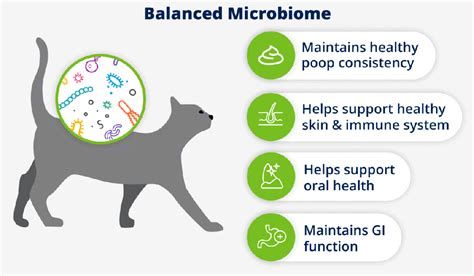Introduction
The digestive system is a complex and essential part of your cat’s overall health. It is responsible for breaking down food into nutrients that the body can use, as well as eliminating waste products. A healthy digestive system is essential for maintaining a healthy weight, coat, and immune system.

Common Digestive Problems in Cats
There are a number of digestive problems that can affect cats, including:
- Vomiting: Cats often vomit when they eat something that does not agree with them. This can be caused by a variety of factors, including dietary indiscretion, food allergies, or underlying medical conditions.
- Diarrhea: Diarrhea is a common digestive problem in cats that can be caused by a variety of factors, including stress, dietary changes, and infections.
- Constipation: Constipation is a less common digestive problem in cats that can be caused by a variety of factors, including dehydration, a low-fiber diet, and underlying medical conditions.
- Inflammatory bowel disease (IBD): IBD is a chronic inflammatory condition of the digestive tract that can cause a variety of symptoms, including vomiting, diarrhea, weight loss, and lethargy.
- Pancreatitis: Pancreatitis is an inflammation of the pancreas that can cause a variety of symptoms, including vomiting, diarrhea, abdominal pain, and weight loss.
Symptoms of Digestive Problems in Cats
The symptoms of digestive problems in cats can vary depending on the underlying cause. Some of the most common symptoms include:
- Vomiting
- Diarrhea
- Constipation
- Abdominal pain
- Weight loss
- Lethargy
- Loss of appetite
- Changes in litter box habits
Diagnosing Digestive Problems in Cats
If you think your cat may have a digestive problem, it is important to take them to the vet for an examination. The vet will perform a physical examination and ask you about your cat’s symptoms. They may also recommend a blood test, fecal test, or ultrasound to help diagnose the underlying cause of the problem.
Treating Digestive Problems in Cats
The treatment for digestive problems in cats will vary depending on the underlying cause. Some common treatments include:
- Dietary changes
- Medication
- Surgery
- Probiotics
- Prebiotics
Preventing Digestive Problems in Cats
There are a number of things you can do to help prevent digestive problems in your cat, including:
- Feed your cat a high-quality diet that is appropriate for their age and activity level.
- Avoid giving your cat table scraps or other foods that are not part of their regular diet.
- Make sure your cat has access to plenty of fresh water.
- Keep your cat’s litter box clean and free of waste.
- Avoid stress and anxiety in your cat’s life.
- Take your cat to the vet for regular checkups.
Conclusion
The digestive system is a complex and essential part of your cat’s overall health. By understanding the common digestive problems that can affect cats, you can help prevent and treat these problems and keep your feline friend healthy and happy.
Q: What are the most common causes of digestive problems in cats?
A: The most common causes of digestive problems in cats include dietary indiscretion, food allergies, stress, and infections.
Q: How can I tell if my cat has a digestive problem?
A: Some of the most common symptoms of digestive problems in cats include vomiting, diarrhea, constipation, abdominal pain, weight loss, lethargy, and loss of appetite.
Q: What should I do if I think my cat has a digestive problem?
A: If you think your cat may have a digestive problem, it is important to take them to the vet for an examination. The vet will perform a physical examination and ask you about your cat’s symptoms. They may also recommend a blood test, fecal test, or ultrasound to help diagnose the underlying cause of the problem.
Q: How can I prevent digestive problems in my cat?
A: There are a number of things you can do to help prevent digestive problems in your cat, including feeding your cat a high-quality diet, avoiding giving your cat table scraps or other foods that are not part of their regular diet, making sure your cat has access to plenty of fresh water, keeping your cat’s litter box clean and free of waste, avoiding stress and anxiety in your cat’s life, and taking your cat to the vet for regular checkups.
| Digestive Problem | Symptoms | Treatment Options |
|---|---|---|
| Vomiting | Sudden expulsion of stomach contents through the mouth | Dietary changes, medication, surgery |
| Diarrhea | Frequent, loose stools | Dietary changes, medication, probiotics |
| Constipation | Difficulty passing stools | Dietary changes, medication, surgery |
| Inflammatory bowel disease (IBD) | Chronic inflammation of the digestive tract | Dietary changes, medication, surgery, probiotics |
| Pancreatitis | Inflammation of the pancreas | Dietary changes, medication, surgery, probiotics |
Testimonial 1:
“My cat was suffering from chronic vomiting and diarrhea. I took him to the vet and they diagnosed him with IBD. The vet prescribed a special diet and medication, and my cat has been doing much better since then.” – Sarah J.
Testimonial 2:
“My cat had a bout of constipation after eating some table scraps. I gave him a laxative and he was back to normal within a few hours.” – John D.
Testimonial 3:
“I’ve always fed my cat a high-quality diet and she’s never had any digestive problems. I think it’s important to feed your cat a healthy diet to help prevent digestive problems.” – Mary S.
Testimonial 4:
“I take my cat to the vet for regular checkups, and they always check her digestive system. I’m glad I do this because it helps me catch any potential problems early on.” – Susan B.
The digestive system is a complex and essential part of your cat’s overall health. By understanding the common digestive problems that can affect cats, you can help prevent and treat these problems and keep your feline friend healthy and happy.





















